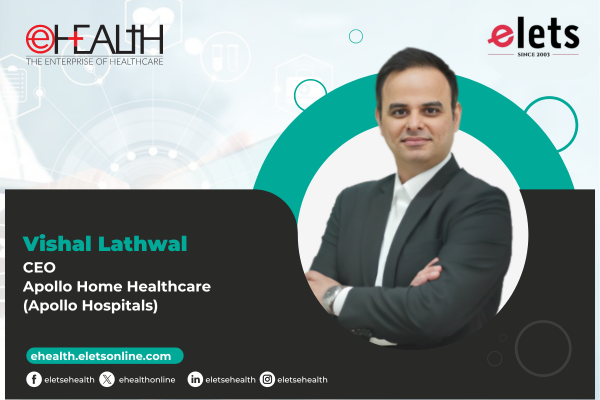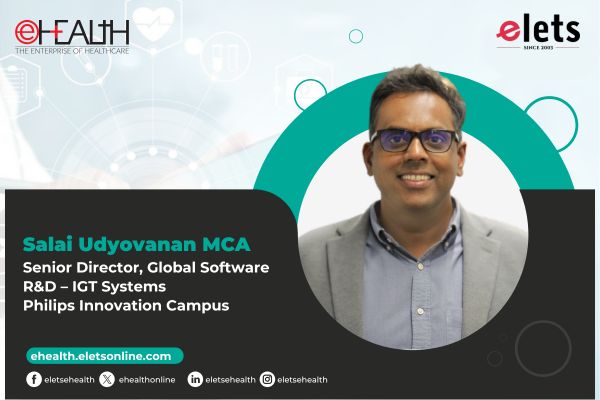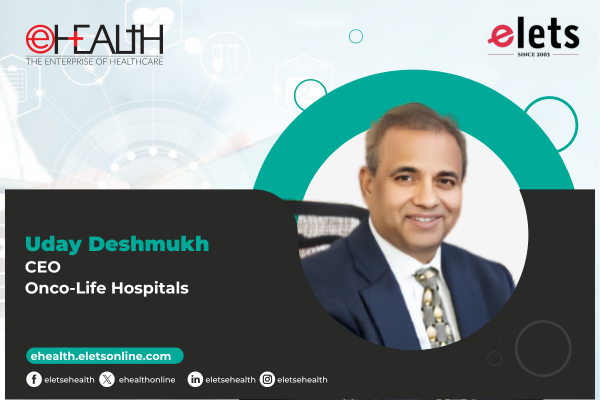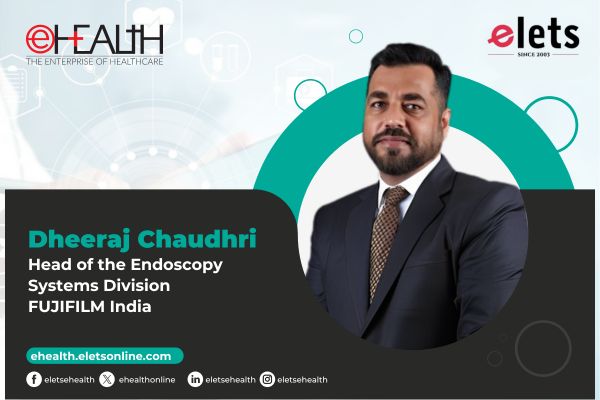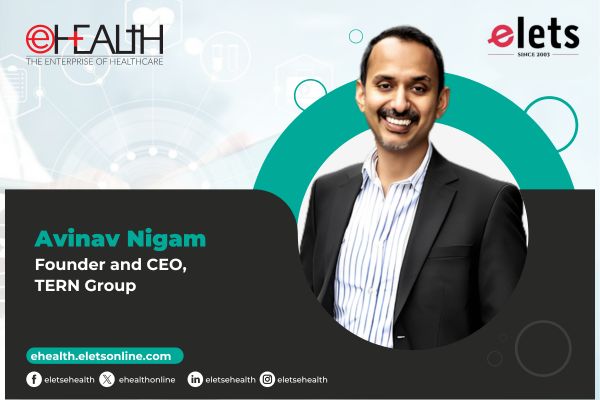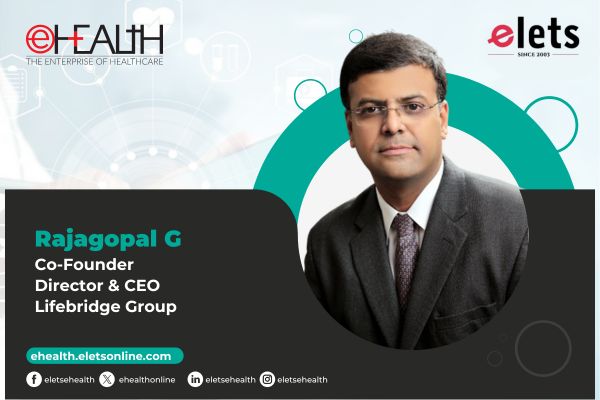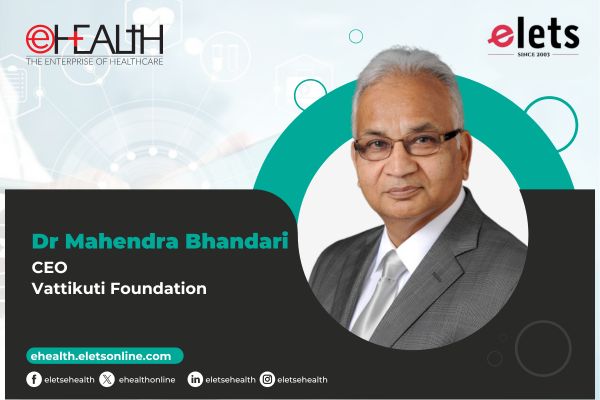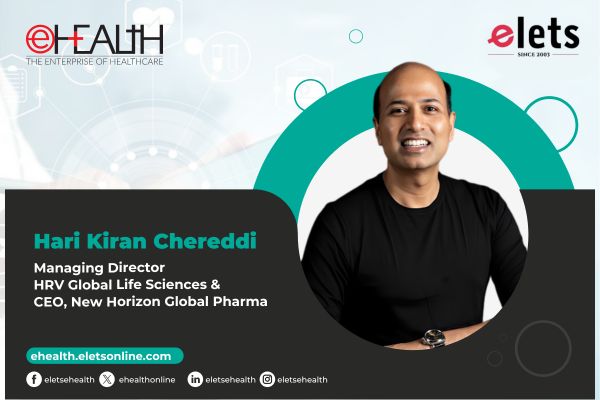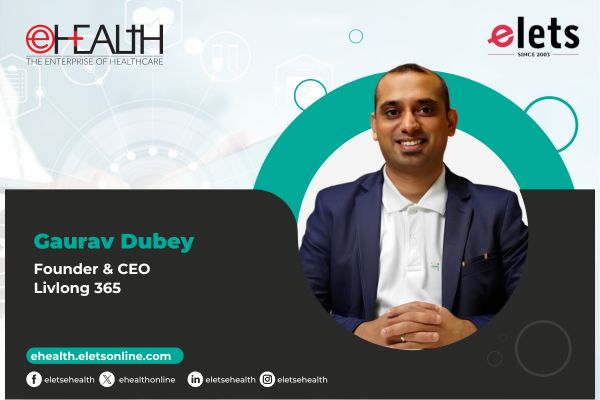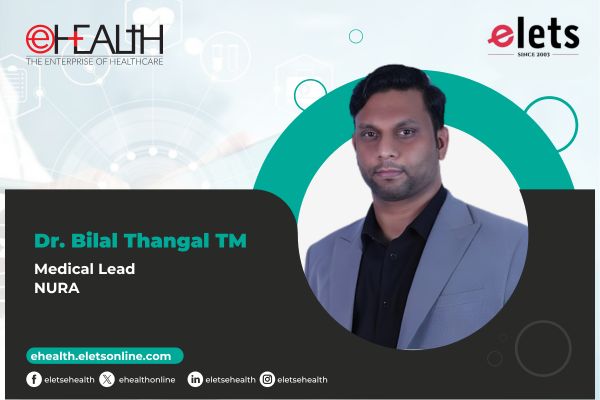
As AI-driven diagnostics redefine preventive healthcare, NURA is at the forefront of leveraging cutting-edge technology to enhance early disease detection in India. In an exclusive interview with Dr. Bilal Thangal TM, Medical Lead, NURA, Dr. Asawari Savant from Elets News Network (ENN), explores how AI-powered imaging is transforming the healthcare landscape, improving diagnostic accuracy, efficiency, and accessibility for providers and patients alike. Edited excerpts
How is NURA leveraging AI technology to enhance the accuracy, efficiency, and accessibility of early disease detection in India?

At NURA, our state-of-the-art AI-powered screening technology delivers rapid and precise results while prioritizing patient safety. Our minimally invasive and ergonomically designed machines ensure a smooth and seamless screening experience.

AI technology significantly enhances the accuracy, efficiency, and accessibility of early disease detection in medical imaging. It assists radiologists in precisely analyzing images, automating time-consuming tasks such as lesion measurements, and detecting abnormalities that may go unnoticed during human analysis. This heightened precision improves diagnostic accuracy, enabling early detection of conditions such as cancer and cardiovascular diseases. Early detection is crucial for timely interventions and better patient outcomes.

What is NURA’s vision for the future in terms of partnerships, technological advancements, and expansion? Are there any groundbreaking initiatives or plans on the horizon?

NURA is committed to expanding its screening services across multiple cities, focusing on bridging healthcare accessibility gaps, particularly in underserved regions. As part of our growth strategy, we are investing in next-generation AI-powered models to further enhance diagnostic precision and efficiency.
Beyond technological advancements, we aim to raise awareness about the importance of preventive care through targeted outreach and educational initiatives. Strategic collaborations with key industry players will be instrumental in scaling our operations while maintaining the highest standards of quality and affordability. We believe these initiatives will revolutionize preventive healthcare in India, making advanced screening solutions more widely accessible and fostering a proactive approach to health management.
What is your perspective on the current state of AI-enabled imaging in India? How do you see this landscape evolving over the next few years?
AI-enabled imaging in India is at a transformative stage. With growing adoption in both public and private healthcare sectors, it is set to revolutionize the country’s healthcare system. The biggest advantage of advanced imaging solutions is their ability to enhance diagnostic accuracy and efficiency, detecting critical patterns that might otherwise be missed by the human eye.
Over the coming years, AI-driven imaging technologies will become more integrated into radiology workflows, enabling radiologists to perform their tasks more efficiently. When combined with telemedicine, these technologies will also play a crucial role in expanding diagnostic services to remote and underserved areas. However, addressing infrastructure challenges and providing adequate training for healthcare professionals will be key to ensuring widespread adoption.
Despite their potential, the full-scale integration of AI-driven imaging solutions into routine clinical practice remains slow due to challenges such as limited access to new technology and high initial costs. Overcoming these barriers will be essential for accelerating AI adoption in medical diagnostics.
AI has revolutionized digital radiology and imaging. Could you elaborate on its role in advancing screening, prevention, and early detection of cardiovascular diseases?
AI-enabled imaging significantly improves the early detection and prevention of cardiovascular diseases. High-precision imaging data helps identify subtle abnormalities that may indicate conditions such as coronary artery disease and heart failure.
NURA’s advanced screening solutions provide comprehensive health insights within 120 minutes, making preventive care more accessible. Our AI-powered technology is revolutionizing cardiovascular diagnostics, shifting the focus from treatment to early prevention. By detecting heart-related anomalies early, physicians can intervene promptly through medication or surgical procedures if necessary, ultimately improving patient outcomes.
What emerging trends or innovations do you foresee shaping the future of AI-enabled imaging, particularly in India’s preventive healthcare ecosystem?
The future of preventive healthcare in India looks promising, driven by advancements in predictive analytics, real-time monitoring, and improved accessibility. AI-powered imaging solutions will increasingly integrate with wearable health technology, enabling continuous monitoring of vital organs and early risk detection.
Enhanced deep learning models will further improve diagnostic accuracy, allowing healthcare professionals to not only treat diseases but also prevent them from occurring. Additionally, AI will enable personalized screening programs, fostering proactive disease management and making preventive healthcare more data-driven, precise, and widely available across the country.
Also Read :- Vision for Standardized Emergency Medical Services in India
How can strategic collaborations—with government bodies, industry players, or healthcare institutions—help NURA enhance the efficiency and scalability of its AI-driven diagnostic solutions?
Strategic collaborations with government bodies, industry players, and healthcare institutions will play a crucial role in expanding the reach of NURA’s AI-driven diagnostic solutions. Such partnerships will facilitate awareness campaigns, large-scale adoption of preventive health programs, and improved accessibility to advanced screening technologies.
Collaborating with government organizations can drive the integration of AI-powered diagnostics into public health initiatives, particularly in rural and remote areas. Additionally, partnerships with medical institutions will support clinical validation of AI-driven imaging solutions and provide training for healthcare professionals, ensuring seamless implementation. These collaborations will accelerate the adoption of preventive healthcare solutions, leading to improved early detection and treatment of major and lifestyle-related diseases.
What are the key gaps and challenges currently facing the medical diagnostics and imaging industry in India? How can these be effectively addressed?
The medical diagnostics and imaging industry in India faces several key challenges, including a lack of awareness, infrastructure limitations, and a shortage of skilled professionals trained in AI-driven imaging technologies.
To address these issues, comprehensive training and upskilling initiatives are essential for the seamless integration of AI-powered diagnostic tools. High implementation costs also pose a barrier, particularly for smaller healthcare facilities. Public-private partnerships and government initiatives can help subsidize AI adoption and make these technologies more accessible.
India needs a well-defined healthcare framework, increased investments in infrastructure, and skill development programs to bridge these gaps. Robust validation and clinical trials will also be necessary to build confidence in AI-driven medical diagnostics. A collaborative approach involving policymakers, healthcare providers, and technology firms will be key to overcoming these barriers and ensuring the successful integration of AI into India’s medical imaging landscape.
Be a part of Elets Collaborative Initiatives. Join Us for Upcoming Events and explore business opportunities. Like us on Facebook , connect with us on LinkedIn and follow us on Twitter , Instagram.
"Exciting news! Elets technomedia is now on WhatsApp Channels Subscribe today by clicking the link and stay updated with the latest insights!" Click here!






